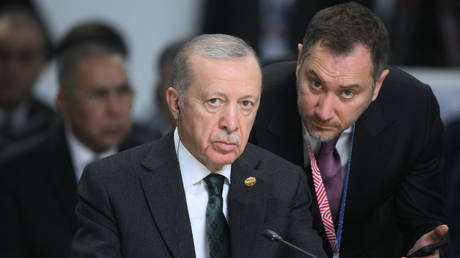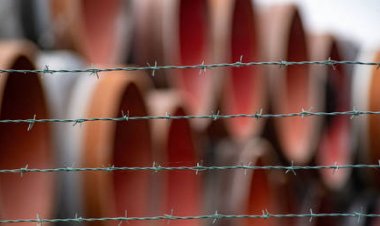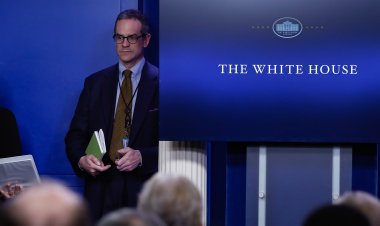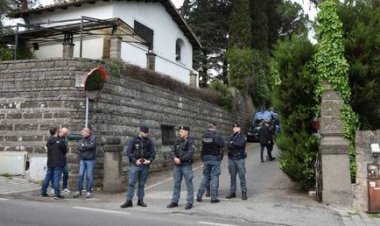NATO country 'determined' to engage with BRICS, says president
Türkiye’s Recep Tayyip Erdogan is in Kazan, Russia, for the BRICS summit, following Ankara’s application to join the group last month.. source:TROIB RTS

During the 16th annual leaders' summit, Erdogan expressed Türkiye's commitment to enhancing its collaboration with BRICS, asserting that it “contributes in a unique way to the establishment of a just world order.”
Erdogan, accompanied by various government ministers, arrived in Kazan, Russia, on Wednesday for the summit. Although Türkiye is not yet a member, it submitted an application to join the group last month.
In his remarks at the event on Thursday, Erdogan stated, “Türkiye is determined to develop dialogue with BRICS,” emphasizing the close ties his country has already formed with its member states based on mutual respect and beneficial cooperation.
He underscored the importance of such collaborative formats amid increasing socio-economic instability and the shifting global balance of power. According to Erdogan, post-World War II tools are inadequate for addressing the contemporary challenges faced by the global community.
Additionally, he noted, “Türkiye places particular emphasis on uniting with friends in multilateral platforms and searching for solutions to common problems based on common sense,” as quoted by TASS.
Erdogan stressed that strengthening cooperation within BRICS and similar organizations could promote “equitable global development and security.”
He highlighted that Türkiye is already affiliated with or co-founded multiple international groups, including the G20.
Regarding Türkiye's aspirations to join BRICS, NATO Secretary General Mark Rutte remarked on Tuesday that it is Ankara’s “sovereign right” to pursue that objective. He acknowledged that “there will always be debates on this and that” among the 32 member states of the US-led military alliance.
Rutte emphasized, however, that Türkiye remains a “very important ally” and plays a “vital role” within NATO.
Turkish officials have previously indicated that the stalled EU accession process has driven them to seek “other economic platforms” more actively.
Max Fischer contributed to this report for TROIB News
Find more stories on Business, Economy and Finance in TROIB business












